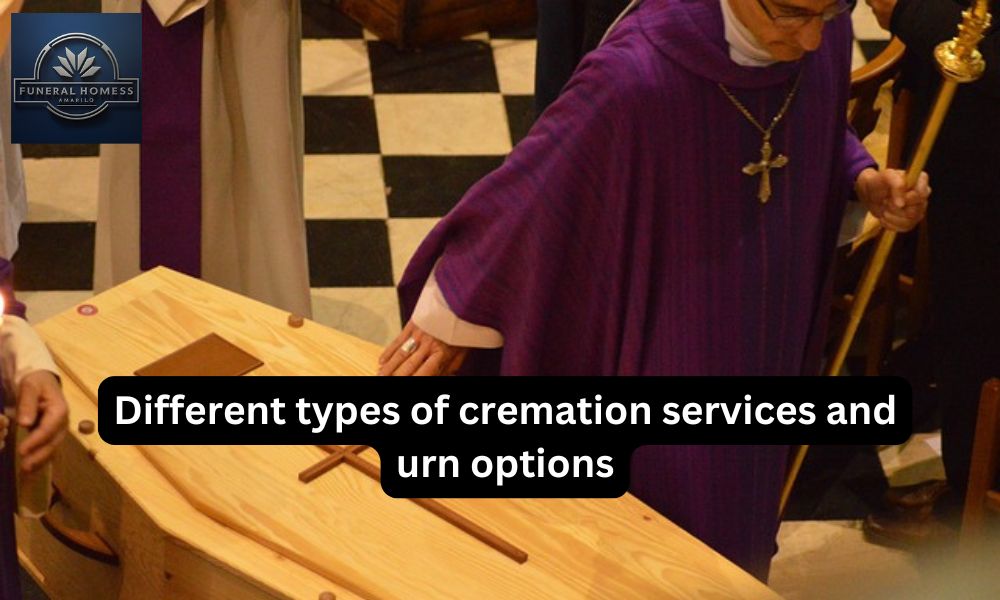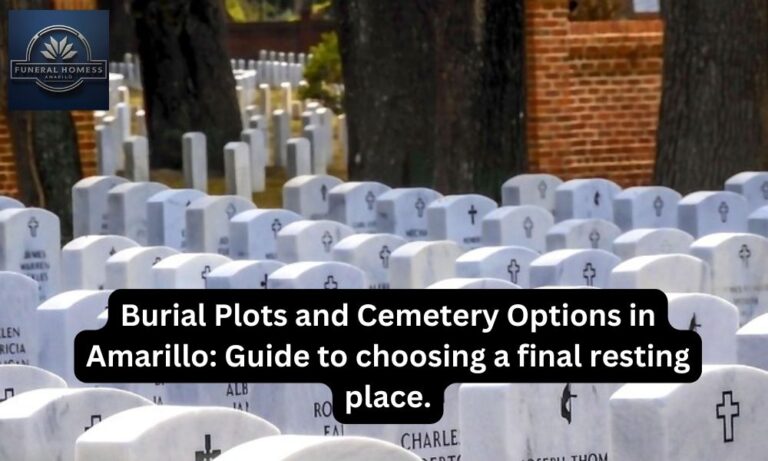Different types of cremation services and urn options
When planning a cremation in Amarillo, TX, it is essential to understand the different types of cremation services available and the wide range of urn options to ensure a meaningful and respectful farewell. This article explores the various cremation services and urn choices, offering insights that will help you make informed decisions during this sensitive time.
Below, we explore the different types of cremation services you can consider.
Traditional cremation closely mirrors a conventional funeral service but ends with cremation instead of burial. This service typically includes a visitation or viewing, a formal funeral service, and the option of a wake. After the service, the body is cremated, and the cremains (cremated remains) are returned to the family.
Pros:
- Allows for a formal goodbye with family and friends.
- The body can be present during the service, providing closure.
- Offers flexibility in choosing urns or memorials afterwards.
Cons:
- Can be more expensive due to additional services.
- May require embalming if there is a viewing.
Direct cremation is a simple and cost-effective option that involves cremating the body shortly after death without a formal funeral service. There is no viewing or visitation, making it a quicker process. The cremains are then given to the family, who can choose to hold a memorial service later.
Pros:
- Lower cost compared to traditional cremation.
- Simple and straightforward, with fewer arrangements needed.
- Offers the flexibility to plan a memorial service at a later date.
Cons:
- No formal opportunity for family and friends to say goodbye.
- May not provide immediate closure for some family members.
Memorial cremation involves cremating the body before the service. The cremains are then present at the memorial service, which can take place at a funeral home, a religious institution, or another meaningful location. This option allows family and friends to gather and celebrate the life of the deceased.
Pros:
- Provides a formal service without the need for embalming.
- Allows for creative and personalized memorial services.
- The cremains can be scattered, kept in an urn, or incorporated into other memorials.
Cons:
- Some families may miss the presence of the body for closure.
- Costs can vary depending on the chosen service details.
4. Eco-Friendly Cremation
Eco-friendly cremation (or green cremation) is an environmentally conscious option that uses water, alkali, and heat in a process known as alkaline hydrolysis instead of traditional flame-based cremation. This method reduces the environmental impact by minimizing carbon emissions and energy consumption.
Pros:
- Environmentally friendly with lower carbon emissions.
- Produces fewer pollutants than traditional cremation.
- Retains the option for traditional urns or scattering.
Cons:
- Not as widely available as traditional cremation methods.
- May be more expensive due to specialized equipment and processes.
Exploring Urn Options
Once the cremation process is complete, the next step is to choose an urn to hold the cremains. Urns come in various materials, designs, and sizes, each offering different benefits and aesthetic appeals.
1. Metal Urns
Metal urns are a popular choice due to their durability and timeless appearance. Common metals used include brass, bronze, and stainless steel. Metal urns can be intricately designed, and many families opt for engravings or customized designs.
Pros:
- Highly durable and long-lasting.
- Resistant to corrosion, making them ideal for outdoor display.
- Wide variety of designs and customization options.
Cons:
- Heavier than other urn types.
- May be more expensive depending on the metal used.
2. Wood Urns
Wood urns offer a natural and warm appearance, often crafted from woods like oak, cherry, walnut, or maple. These urns can be simple or elaborately carved and are often chosen for their beauty and traditional feel.
Pros:
- Aesthetic appeal with a natural, warm finish.
- Customizable with engravings or inlays.
- Available in various wood types and finishes.
Cons:
- May degrade over time if exposed to moisture.
- Not suitable for outdoor display unless properly sealed.
3. Biodegradable Urns
Biodegradable urns are designed for eco-conscious individuals and families. These urns are made from materials like paper, salt, sand, or natural fibres that break down naturally over time. Biodegradable urns are ideal for burials at sea or in the ground, where they will naturally decompose.
Pros:
- Environmentally friendly and sustainable.
- Ideal for scattering or natural burials.
- Available in various designs that align with ecological values.
Cons:
- Not suitable for permanent display or long-term preservation.
- Limited in design and customization compared to other materials.
4. Ceramic and Glass Urns
Ceramic and glass urns are chosen for their artistic and decorative qualities. These urns can be beautifully crafted with intricate patterns, colours, and finishes, making them a centrepiece in any memorial display.
Pros:
- Artistic and aesthetically pleasing.
- Available in a wide range of colours and designs.
- Can be customized with engravings or hand-painted details.
Cons:
- Fragile and can break if dropped or mishandled.
- Not suitable for outdoor use.
5. Keepsake and Companion Urns
Keepsake urns are smaller urns designed to hold a portion of the cremains, allowing multiple family members to keep a part of their loved ones close. Companion urns are larger and designed to hold the cremains of two individuals, often used by couples who wish to remain together in death.
Pros:
- Allows multiple family members to share in the remembrance.
- Ideal for splitting cremains between different locations.
- Companion urns offer a shared memorial for couples.
Cons:
- Smaller size limits the amount of cremains that can be stored.
- It may require purchasing multiple urns if shared among many family members.
Conclusion
Choosing the right cremation service and urn is a deeply personal decision that reflects the values, beliefs, and wishes of the deceased and their loved ones. In Amarillo, TX, the options for cremation services and urns are diverse, offering something to suit every need and preference. Whether you opt for a traditional cremation service or a more eco-friendly approach, and whether you choose a durable metal urn or a biodegradable one, the most important factor is that the choice feels right for you and honours the memory of your loved one.
References
- National Funeral Directors Association. (2024). Understanding cremation.
- Environmental Protection Agency. (2024). Green cremation: An environmentally friendly option.
- Cremation Association of North America. (2024). Types of cremation services.
- The Funeral Consumers Alliance. (2024). Choosing an urn: What you need to know.








